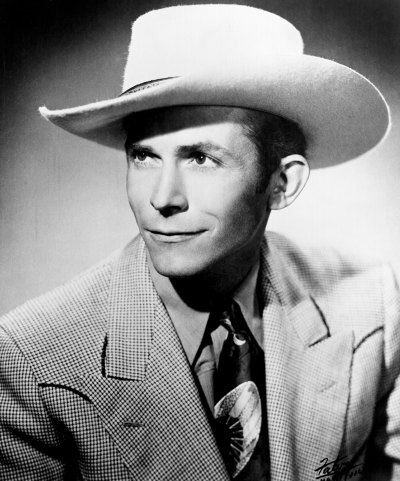When Hank Williams first stepped onto the stage of The Grand Ole Opry, it was a moment that would forever change country music history. On that unforgettable night of June 11, 1949, the tall, 25-year-old performer walked up to the microphone and delivered a rendition of his No. 1 hit, “Lovesick Blues,” that brought the house down. As his daughter, Jett Williams, revealed in an exclusive interview with Closer Weekly (the magazine’s latest issue, now available on newsstands!), “He was just a guest back then, without his band or any of the usual fanfare.”
Despite his reputation for heavy drinking, the Opry couldn't ignore the rising star. They reluctantly booked him, and what happened next was nothing short of magical. “He went on and got six encores!” Jett exclaimed, her voice filled with awe. “That night, he became known as the ‘Lovesick Blues’ boy, a name that stuck with him for the rest of his career.”
Hank Williams: More Than Meets the Eye
Jett Williams, a singer-songwriter herself, doesn't shy away from the fact that her father had his demons. Much of his struggles stemmed from the spina bifida he was born with, which caused him lifelong back pain. But beyond the public perception of Hank as a sorrowful, lonely man battling addiction and depression, Jett paints a more nuanced picture. “If you really listen to his music, you’ll hear the humor in songs like ‘Hey, Good Lookin’ and ‘Jambalaya,’” she said. “He had a great sense of humor, and there are countless stories about the kind of person he truly was.”
Read also:Is Ron Jeremy Still In Prison The Untold Story Behind The Porn Icons Legal Drama
Jett, now 65, was born just five days after her father's untimely death at the age of 29 from a heart attack. She grew up hearing tales about the man who left such an indelible mark on the world of music. “He wasn’t just the sad, drinking figure people thought he was,” she reflected. “He was so much more.”

Life After Hank
Hank’s tragic death on January 1, 1953, while being driven to a gig in Ohio, is believed to have been triggered by his addictions. His mother, Lillie, who was incredibly devoted to him, adopted Jett after his passing. When Lillie passed away, an Alabama couple took Jett in, though she wouldn’t discover her true heritage until years later. In 1985, Jett successfully sued to secure her rights as one of Hank’s heirs, alongside her half-brother, Hank Williams Jr., who was 69 at the time.
Today, Jett says her relationship with her family is better than ever. She enjoys sharing stories about her dad, including tales of his generosity. “He was such a giving person,” she recalled, mentioning a call she received from a DJ who’d known Hank. “This man’s child had been born with a cleft palate, and Hank called him up and said, ‘I’m sending you a blank check. Whatever that baby needs, just fill it out.’ That’s the kind of man he was.”
Behind the Scenes with Hank
Jett also loves to recount the lighter moments of her father’s life. “He had a great sense of humor,” she said, laughing as she shared a story told to her by Hank’s steel guitarist, Don Helms. “My dad had this cigar box he called ‘The Cussing Box.’ He told his band, ‘We all need to clean up our language!’ Whenever someone swore, they had to put a quarter in the box. One time, they were running late for a show because they got lost, and Hank pulled out $5 and threw it into the box, saying, ‘I’m going to need every damn one of them!’”



